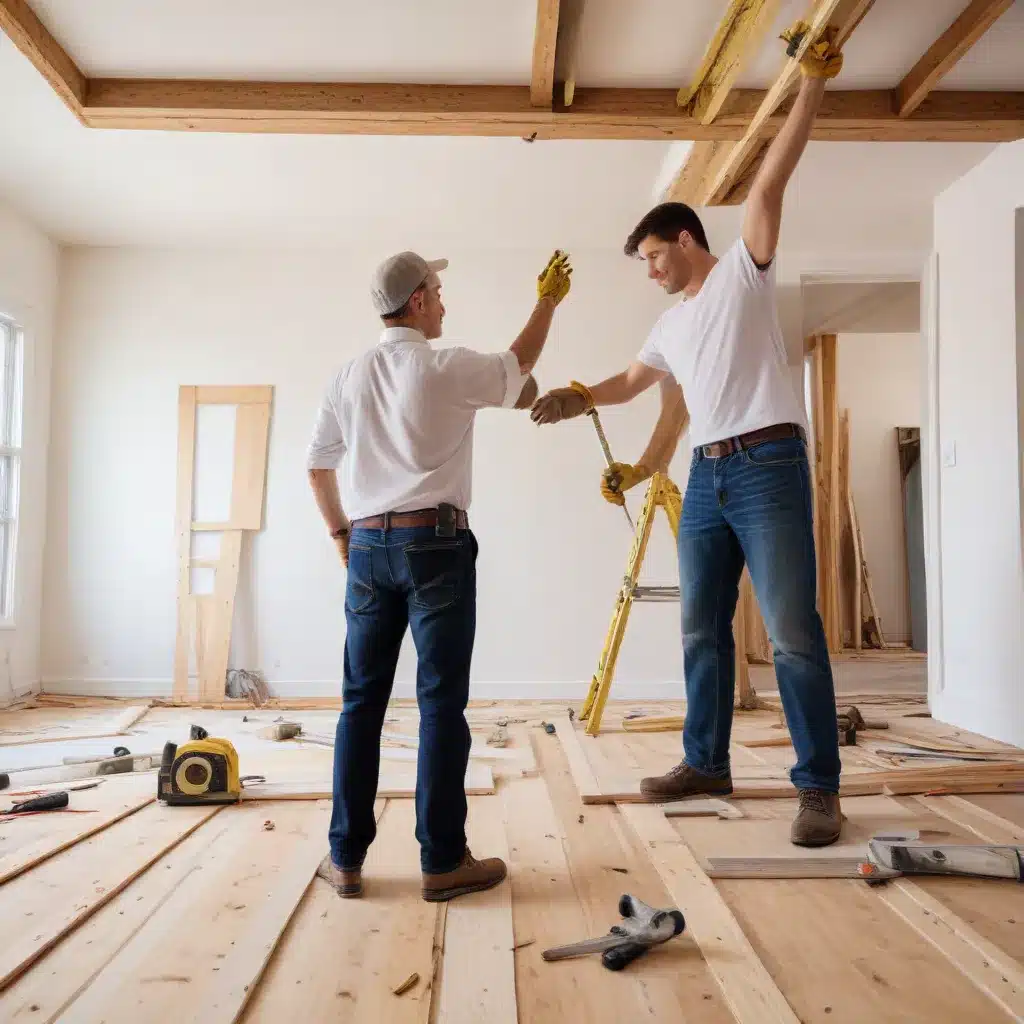
As an experienced home improvement consultant, I’ve seen firsthand the impact that renovations can have on a property’s value. Whether you’re looking to update your tired bathroom, revamp the outdated kitchen, or transform an unused basement, the decisions you make can significantly influence the return on your investment (ROI). In this comprehensive guide, we’ll explore the advantages and considerations of both DIY and contractor-led renovations, helping you make informed choices that maximize your home’s value and appeal.
Renovation Approaches
DIY Renovations
Tackling home improvement projects on your own can be a rewarding and cost-effective approach, but it’s essential to carefully weigh the pros and cons. The primary advantage of a DIY renovation is the potential for significant cost savings, as you eliminate labor expenses. However, this approach also requires a significant time commitment, as well as specialized skills and knowledge to ensure the work is done correctly. DIY projects may also take longer to complete, which can disrupt your daily life and delay the realization of your renovation’s benefits.
Contractor-Led Renovations
Hiring a professional contractor can provide a range of benefits, including access to industry expertise, quality workmanship, and efficient project management. Experienced contractors often have established relationships with reliable subcontractors and suppliers, allowing them to source materials and complete the work in a timely manner. While this approach typically carries a higher upfront cost, the investment can pay dividends in terms of project management, cost efficiency, and quality assurance.
Project Management
Contractor-led renovations often benefit from streamlined project management, with the contractor handling tasks such as obtaining permits, coordinating subcontractors, and ensuring the work is completed to industry standards. This level of oversight can help minimize delays, avoid costly mistakes, and ensure the renovation progresses smoothly.
Cost Considerations
While contractor-led renovations may have a higher initial price tag, the expertise and efficiency they bring to the table can often offset these costs. Experienced contractors may have access to wholesale pricing on materials, negotiate better rates with subcontractors, and identify cost-saving opportunities throughout the project.
Quality Assurance
Hiring a skilled contractor provides an extra layer of quality assurance, as they are responsible for the work’s integrity and adherence to local building codes. This can help prevent costly repairs or modifications down the line, ultimately contributing to a higher long-term ROI.
Return on Investment (ROI)
Measuring ROI
Calculating the ROI of a renovation is a crucial step in determining its overall value. The formula is straightforward: ROI = (Gain from Investment / Cost of Investment) x 100.
Short-Term Benefits
In the short term, a successful renovation can increase a home’s market appeal, making it more attractive to potential buyers and potentially leading to a quicker sale. This can translate to a higher selling price, providing a tangible financial return on your investment.
Long-Term Value
Beyond the immediate resale value, renovations can also enhance a home’s long-term value by improving functionality, energy efficiency, and overall livability. Upgrades such as kitchen and bathroom remodels, basement finishing, and energy-efficient retrofits can attract discerning buyers and command a premium in the marketplace.
Factors Influencing ROI
Property Value
The location and current condition of your home play a significant role in determining the ROI of a renovation. Properties in high-demand areas or with limited inventory tend to see greater returns on their improvements, as buyers are often willing to pay more for a well-updated and desirable home.
Cost Efficiency
Choosing the right materials, fixtures, and finishes can greatly impact the cost-effectiveness of a renovation. Balancing quality and budget is crucial, as high-end upgrades may not always yield a proportionate increase in resale value.
Time to Completion
The timeline of a renovation can also affect its ROI. Prolonged projects that disrupt daily life or result in unexpected delays can diminish the return, as the costs of extended living arrangements or lost rental income can add up quickly.
Optimizing ROI
Decision-Making Process
When planning a renovation, it’s essential to carefully evaluate your goals, budget, and the potential impact on your home’s value. Start by assessing the current condition of your property and researching similar homes in your area to gauge the market’s expectations. This information can help you determine which projects are most likely to yield the highest ROI.
Budgeting Strategies
Developing a realistic budget is crucial for maximizing ROI. Consider factors such as material costs, labor expenses, and any necessary permits or inspections. Be sure to account for potential contingencies, as unexpected challenges can quickly inflate the overall project cost. Evaluating financing options, such as home equity loans or renovation-specific mortgages, can also help you manage your budget and optimize your return.
Maximizing Value
To ensure you’re making the most of your renovation investment, focus on projects that address the needs and desires of your target buyers. Energy-efficient upgrades, modernized kitchens and bathrooms, and functional layout changes are often high-impact improvements that can yield a strong ROI. Additionally, incorporating eco-friendly materials and design features can appeal to environmentally conscious buyers and contribute to long-term cost savings.
Ultimately, the decision to pursue a DIY or contractor-led renovation should be based on a comprehensive analysis of your specific goals, budget, and the potential return on investment. By carefully considering the factors that influence ROI and adopting a strategic approach, you can transform your home and unlock its full value. For more inspiration and guidance, be sure to visit Reluctant Renovator – your trusted resource for all things home improvement.



